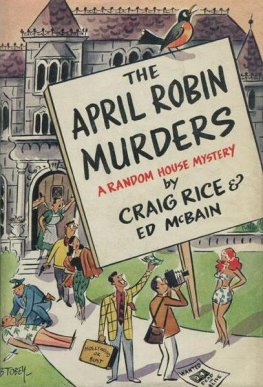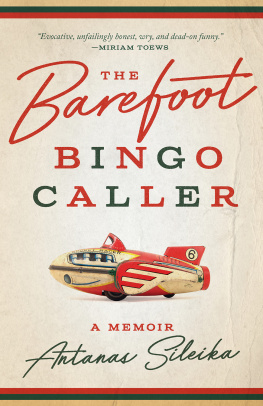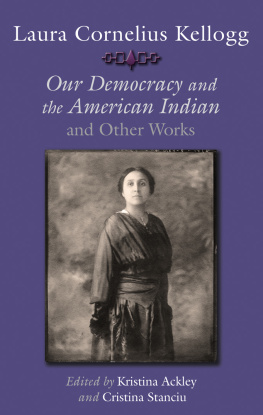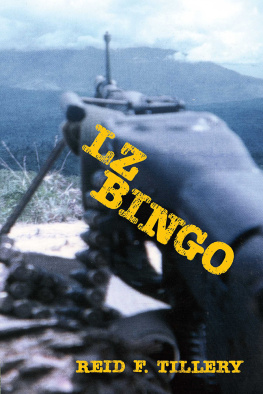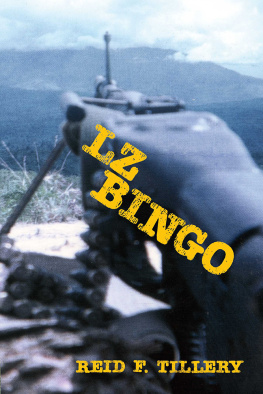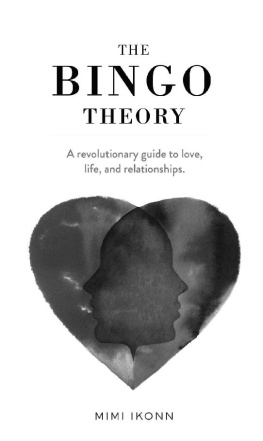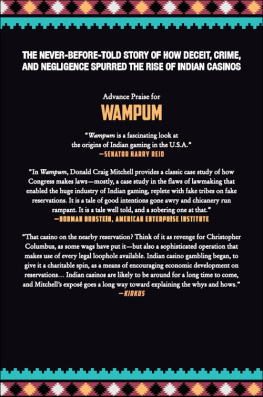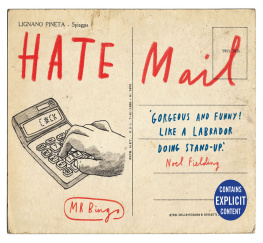THE BINGO QUEENS OF ONEIDA
Praise for The Bingo Queens of Oneida
This book is far more ambitious than its modest title suggests. The two bingo moms, Sandy and Alma, are certainly the heart of the book. But the author places those moms in much broader contextshistorical, cultural, and social. He also liberally interweaves personal stories of Oneida people. The overall effect is to make the book more of a conversation, less of a lecture. Like me, youll be happy to have had that conversation with the author.Arlinda Locklear, attorney and longtime special counsel for the Oneida Nation of Wisconsin
Rooted in extensive research and key interviews, The Bingo Queens of Oneida provides a unique picture of an economic accomplishment of the Oneida Nation of Wisconsin brought about by the ingenuity, doughty work, and remarkable insight of two Oneida mothers. Hoeft admirably places their work in its cultural and historical context. This volume is an indispensable addition to our understanding of a dynamic nation.David R. Wrone, history professor emeritus, University of WisconsinStevens Point
THE
BINGO QUEENS
OF ONEIDA

How Two Moms
Started Tribal Gaming
in Wisconsin
MIKE HOEFT
WISCONSIN HISTORICAL SOCIETY PRESS
Published by the Wisconsin Historical Society Press
Publishers since 1855
2014 by the State Historical Society of Wisconsin
E-book edition 2014
For permission to reuse material from The Bingo Queens of Oneida, ISBN 978-0-87020-652-8 and e-book ISBN 978-0-87020-653-5, please access www.copyright.com or contact the Copyright Clearance Center, Inc. (CCC), 222 Rosewood Drive, Danvers, MA 01923, 978-750-8400.
CCC is a not-for-profit organization that provides licenses and registration for a variety of users.
wisconsin history .org
18 17 16 15 14 1 2 3 4 5
The Library of Congress has cataloged the printed edition as follows:
Hoeft, Mike.
The bingo queens of Oneida : how two moms started tribal gaming in
Wisconsin / Mike Hoeft.First edition.
pages cm
ISBN 978-0-87020-652-8 (pbk.)ISBN 978-0-87020-653-5 (ebook) 1. Oneida womenWisconsinOneida ReservationSocial conditions. 2. Oneida womenWisconsinOneida ReservationEconomic conditions. 3. BingoWisconsinOneida ReservationHistory. 4. Gambling on Indian reservationsWisconsinOneida ReservationHistory. 5. Oneida Reservation (Wis.)History. 6. Oneida Reservation (Wis.)Economic conditions. 7. Oneida Reservation (Wis.)Social life and customs. I. Title.
E99.O45H78 2014
305.8975543077561--dc23
2013045084
To my mom, Ferne Eloise Hoeft,
a journalist and educator
known for giving and receiving comfort
with equal grace
Contents
Prologue
AS A uniquely American game, bingo was like the nation itself, a new strain, separate from older European cultivars, something fresh. Bingo took root in fertile American soil and spread across the country as a diversionary pastime during the Great Depression. Through the hard times of the 1930s even churches found this form of gambling to be socially acceptable and a useful fund-raiser. Similarly, a group of women started bingo in 1976 on the Oneida Indian Reservation in Wisconsin to help pay the bills at the tribes new civic center. This is a true story about the states first Indian bingo hall as told by some of those Oneida women. They had no inkling at the time about the ruckus bingo was about to cause.

November 1979
On any given night, a visitor entering the gym might see up to six hundred players, many of them gray-haired, packed shoulder-to-shoulder on metal folding chairs seated at tables scuffed from being set up and taken down each session. Bingo players come from cities across Wisconsin to try their luck at a game of chance more exciting than the kind played at other charities.
Indian kids and teenagers flit from table to table, selling tickets and cards from lumber company aprons tied around their waists. They started out as volunteers, then managers began to pay them a few dollars at the end of the night if the game did well. Players often tip the kids for good service, so the kids hustle to take care of them. On a good night, a kid can go home with ten dollars tucked into jeans that now smell of cigarette smoke. Its always smoky in the gym on bingo days. Exhaled cigarette smoke rises toward burlap bags and carpet remnants hung near the gyms ceiling. It was the building managers idea to use old fabric to deaden the echoes so that players could hear the bingo caller better. Lit cigarettes perch on the rims of ashtrays and dangle from players lips and fingers. Their eyes, meanwhile, are fixed on the twenty-five-space bingo cards spread before them.
On the last game of the evening, a progressive blackout, the caller racks one of seventy-five balls from the machine and announces B-four! Theres a ripple of chatter as players cover B-4 with a brown pinto bean picked from a pile on each table. Someones bound to win soon; thats the fifty-first number called, the players say to themselves. The winner gets five hundred dollars if the players card is blacked out by the fifty-third number. The jackpot drops by fifty dollars with each number called thereafter. Bingo managers and savvy players both know the probable odds for each game of bingo. They can reasonably predict when someone will bingo, just not who. Thats what makes it exciting. A blackout is nearly certain by fifty-seven with a crowd this size. The players hush for the next number to be called. Strangers cheer on a neighbor whose card is nearly covered with beans. O-sixty-one is called, then G-fifty-five. Then the neighbor shouts Bingo! as her friends cheer and others groan.
One of the bingo ladies comes over, verifies the card, and counts out five hundred dollars in cash on the spot. Its group gambling with the emphasis on social. In this game of chance, you keep playing until someone in the group wins. Thats the beauty of it. You might come in alone, but you play it with other people. The game is more exciting with a crowd. With each game lasting ten to fifteen minutes, a winner shouted Bingo! thirty-four times during a four-hour session at the Oneida reservations bingo hall.

Few players at the time knew that during one particular year, the bingo ladies who handed over the cash did so at the risk of being slapped in handcuffs in return. State and county officials in late 1979 and early 1980 warned of a raid at the rural tribal civic center. Sheriffs deputies were preparing to close it down and arrest the operators for violating Wisconsins bingo control law. As tension grew between the state and the tribe, the bingo operatorsmost of them young momsknew their arrest was the probable outcome. And while they could reasonably predict who would be arrested, they didnt know just when. A raid could come any day now. Players and bingo managers were, in a sense, both gambling; the outcome was riding on a little white ball. If players won, theyd go home with five hundred dollars. If the bingo moms went home to their families at the end of their shift and had a job to come back to the next session, theyd win.
Before Indian casinos sprouted across the country, a few enterprising tribes in the United States got their start in gambling by opening bingo parlors and card rooms in the 1970s and 1980s. Bingo provided these impoverished tribes a source of revenue and offered the mostly non-Indian customers a chance to win higher jackpots than allowed in state-regulated bingo games. Tribal bingo games served as the forerunner of what became known as Indian gaming.
Next page

